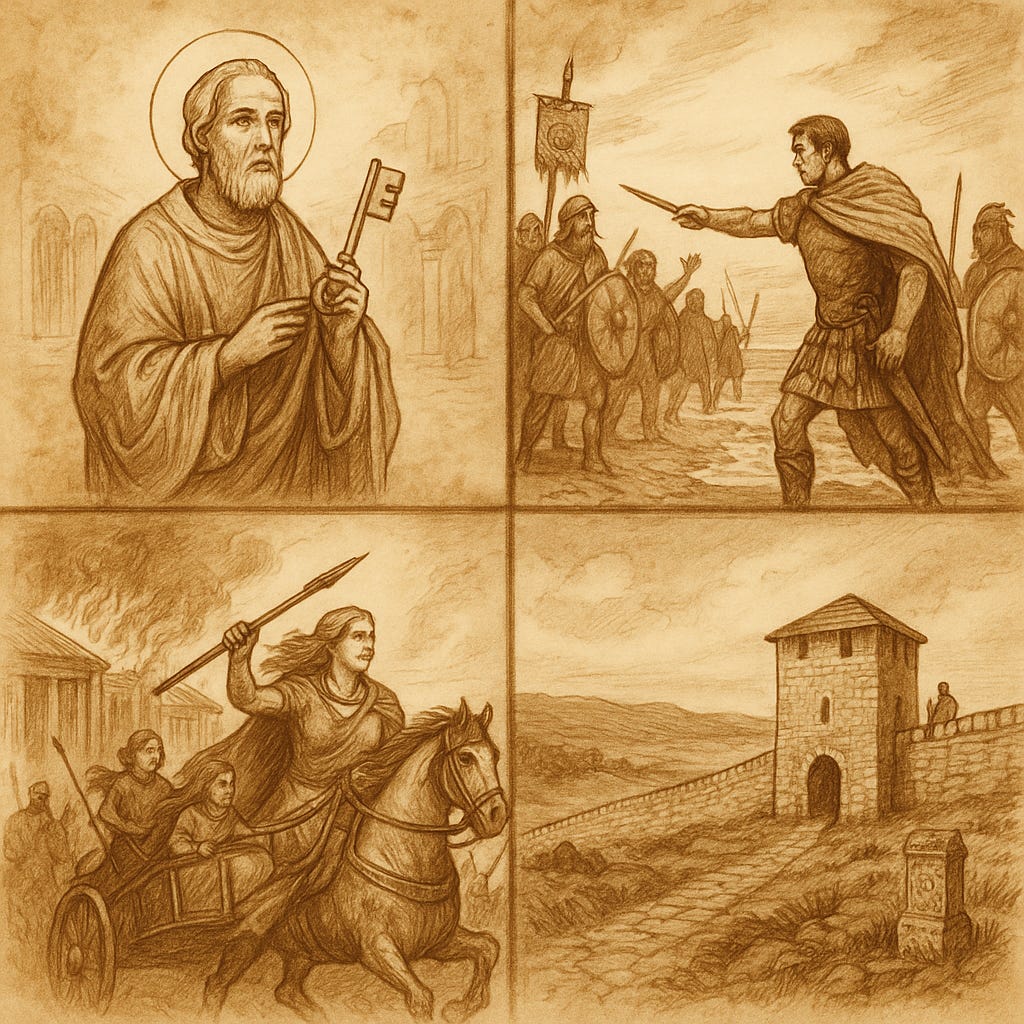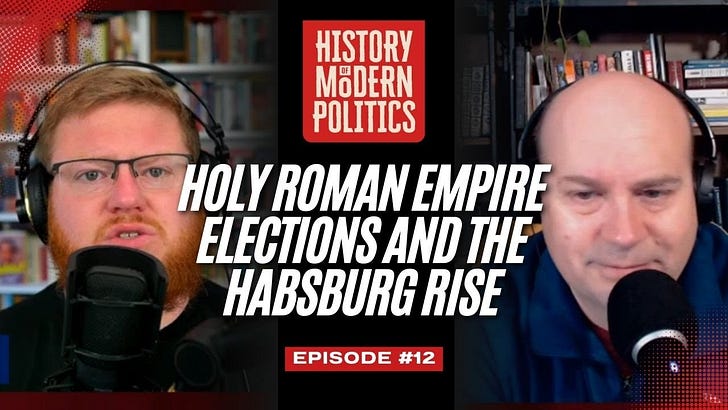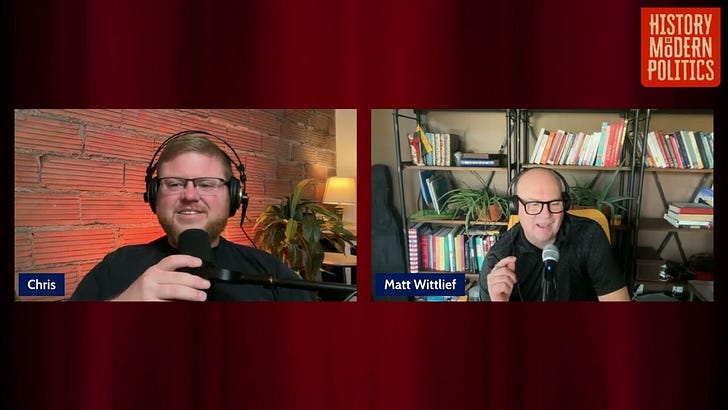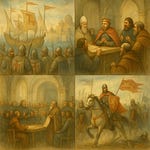Britain moves from rumor to problem the moment Roman soldiers hit the cold surf. Julius Caesar’s 55 and 54 BCE expeditions weren’t conquests so much as stress tests—probes across the Channel that told Rome what it didn’t know: tides, storms, chariots, and the stubborn calculus of distance. He planted a flag in the Roman imagination, then left. The island stayed unconquered—and unforgettable.
Nearly a century later, Emperor Claudius finished what the Republic would not. With better logistics, political incentives, and client-king alliances, the invasion of 43 CE put real Roman weight on British soil. Roads, forts, tribute, and law followed. Resistance did too. (File that tension—imperial order vs. local autonomy—for later episodes.)
What sticks with me here is the handoff. Caesar represents the late-Republic pattern: personal glory, workaround campaigns, and spectacle. Claudius represents the imperial machine: bureaucracy, supply chains, and permanence. Same shoreline, different lens. One tests the door; the other installs the lock.
If Episode 1 asked why we start on the edge of Rome, Episode 2 shows how edges get absorbed—and at what cost. The island’s politics begin to rewire: tribes negotiating with governors, client kings hedging bets, and new elites emerging in the slipstream of conquest. Britain isn’t “Roman” yet, but it’s no longer just Britain either.
Next time, we’ll watch what empire builds—and what it breaks—once the governors unpack their ledgers.












